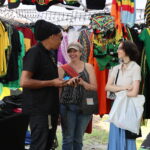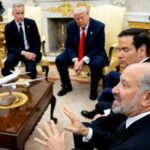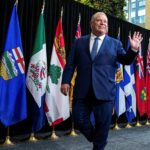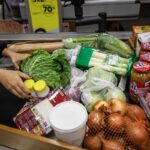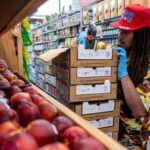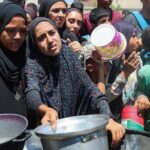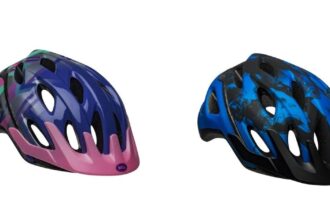In the sterile hallways of a hospital five years ago, Canadian Cabinet Minister Dominic LeBlanc faced a grim reality. Diagnosed with non-Hodgkin lymphoma, his survival hinged on finding a stem cell donor—a perfect stranger whose genetic code might save his life. What unfolded next demonstrates how modern medicine can create profound human connections across continents.
“When doctors tell you that you need a stem cell transplant to survive, it’s terrifying,” LeBlanc told me during our conversation at his Parliament Hill office. “You realize your life depends on someone you’ve never met, who lives somewhere in the world, making a deeply personal choice.”
For LeBlanc, that someone was Jonathan Kehl, a then 20-year-old college student from southern Germany. Kehl had registered as a donor with DKMS, an international nonprofit organization, after attending a campus donor drive. The simple cheek swab he provided that day would eventually match him with LeBlanc, a political figure nearly 6,000 kilometers away.
The odds of finding a compatible donor outside one’s family are extraordinarily slim—approximately 1 in 40,000. Yet the sophisticated global registry system identified Kehl as LeBlanc’s potential lifesaver. Neither man knew anything about the other during the donation process, as strict confidentiality protocols prevent disclosure of identities for at least two years following a transplant.
“I received the call that they had found a match while sitting in a Cabinet meeting,” LeBlanc recalled. “I had to step out, and when the transplant coordinator told me they had found someone, I broke down in tears right there in the hallway of the Prime Minister’s Office.”
Kehl’s donation process involved five days of injections to stimulate stem cell production, followed by a five-hour apheresis procedure—a specialized blood collection process that harvests stem cells while returning other blood components to the donor. The cells were then carefully transported to Canada where they were transfused into LeBlanc’s bloodstream.
Dr. Natasha Kekre, a hematologist at Ottawa Hospital who specializes in stem cell transplantation, explains: “These donor cells essentially rebuild the patient’s entire immune system. It’s like giving someone a second chance at life with a completely new blood manufacturing factory.”
The transplant succeeded, and LeBlanc gradually returned to his political duties. Though his recovery journey included setbacks—including a separate diagnosis of skin cancer in 2019—the minister has remained resilient. Today, he serves as Minister of Public Safety, Democratic Institutions and Intergovernmental Affairs in the Trudeau government.
Two years after the transplant, when confidentiality restrictions lifted, LeBlanc reached out to Kehl. Their first meeting occurred virtually during the pandemic, a moment LeBlanc describes as “surreal and deeply emotional.” Last month, they finally met in person when Kehl, now 25 and studying engineering, visited Ottawa with his parents.
“Looking at Jonathan was like looking at my own biological son,” LeBlanc said. “His cells are now my cells. My blood type changed to his. It’s a scientific miracle but also a profound human connection that transcends borders and politics.”
The minister has become an outspoken advocate for stem cell donation, particularly encouraging young Canadians to register. The Canadian Blood Services reports that while thousands register annually, the need for donors—especially from diverse ethnic backgrounds—remains critical.
Kehl, for his part, remains humble about his contribution. “I just filled out a form and gave some cells. Dominic did the hard part of fighting through the illness,” he told reporters during his Canadian visit. “Anyone would have done the same.”
Medical experts disagree with Kehl’s modest assessment. “What donors like Jonathan do is extraordinary,” says Dr. Kekre. “The minor discomfort they experience during donation can mean the difference between life and death for patients.”
LeBlanc’s story raises important questions about our interconnectedness in an often-divided world. When life-saving medicine requires crossing borders, how might we reconsider our relationship with strangers? And as genetic science advances, what new ethical questions arise about our responsibility to one another’s health?
As I left the minister’s office, he showed me a framed photo of himself with Kehl, both smiling widely on Parliament Hill. “Every morning, I look at this and remember that my life was saved by someone who had no reason to help me except basic human kindness,” LeBlanc said. “If that doesn’t change how you see the world, nothing will.”




